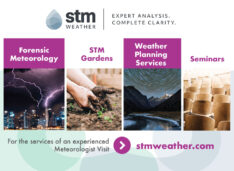MassLandlords Files Testimony for Proposed Sanitary Code Rewrite
| . Posted in Did you know?, News - 0 Comments
On Friday October 6, MassLandlords filed 13 pages of written testimony for the proposed rewrite of the Minimum Standards of Fitness for Human Habitation, aka the “State Sanitary Code.” The State Sanitary Code is the checklist all landlords must follow before renting an apartment. MassLandlords members and staff found 32 proposed changes that needed to be reconsidered.

The Minimum Standards for Human Habitation in Massachusetts are so much higher than in this Kenyan slum. It is a difficult, important job to figure out which regulations are necessary for health and safety, and which increase homelessness by needlessly increasing housing costs. Claudio Allia. Mathare Valley Slum, Kenya. CC-SA 3.0.
Seven problems with proposed changes were deemed “Very Important” by MassLandlords, which urged the Department of Public Health not to amend those portions of the code until focused public hearings could be held. The affected areas were in water submetering, dual temperature ranges, central heating, mechanical ventilation, baluster spacing, integrated pest management, and refuse.
Below are excerpts from the public testimony filed, with some additions to clarify the testimony for readers who are not already familiar with the proposed changes.
Water Submetering
In 410.130C, regulation has been proposed on top of MGL Chapter 186 Section 22, the water submetering law.
In the eyes of many owners, this statute is already overly difficult, unappealing, and a failure to encourage water conservation through apportioned billing. The additional requirements proposed to 410 CMR might effectively prevent all additional submetering under the statute. MassLandlords has written about the need for water pricing reform and submetering.
This section should be left unchanged until the Department can schedule a dedicated hearing on water submetering. MassLandlords would welcome the opportunity to work with the Department to amend the statute directly.
Dual Temperature Ranges
In 410.150, two different temperature scales have been proposed for bathing vs other hot water fixtures. The existing regulation offers a range of 20°F to accommodate not only variability in water heater output temperature but also differing pipe lengths, insulation, in-wall convection, and through-pipe conduction to different fixtures. The proposed changes appear intended to address scald prevention in showers and baths.
The ways to comply with the regulation would be to have two different heaters or plumbing systems (economically infeasible) or to retrofit existing tub and shower mixing valves with thermostatic devices. These devices range in cost from $50 to $800 per unit, depending on the shower model, pre-installation. Most landlords seeking to use a licensed plumber are not going to be able to make this change for less than $300 per unit.
This section should be left unchanged until the Department can schedule a dedicated hearing on water temperature and scald prevention. It may be better to reduce the maximum allowable temperature to 120°F everywhere, mandate scald prevention only when the elderly or children are in residence, or find other compromise measures.
Central Heating
In 410.160, the proposed regulation would outlaw heating by wood stove or pellet stove. It would also make it a violation to use an electric space heater as a heat source, even temporarily.
Franklin County has a large number of owners who are out of service range of natural gas and who cannot afford oil. These owners rely on properly installed, maintained, and vented wood combustion to heat their units. The implications for climate change and regional economics require much more debate on this issue than can be accomplished when so many other changes have been proposed.
An additional issue with this section is the absolute prohibition of electric space heaters, even on a temporary basis. This provides an owner who suffers a heating failure no compliant means to restore central heating during the repair. During the winter holidays or other times, it can take a period of time to restore the intended source of central heating after total failure. A premise that otherwise might have been considered habitable with space heaters will now be uninhabitable with all the liability that comes with it.
This section should be left unchanged until the Department can schedule a dedicated hearing on the climatological and economic costs of making this switch or not. Electric space heaters should be discussed and possibly expanded to a detailed section covering emergency compliance.
Mechanical Ventilation
In 410.220, mechanical ventilation would be required for all bathrooms.
Although mechanical ventilation is usually far superior to passive window ventilation, it can be prohibitively expensive to install in bathrooms with inadequate space between floors. Mechanical ventilation should be required for buildings constructed or renovated only when it was required in the building code. Passage of the new regulation would, with the stroke of a pen, render uninhabitable countless numbers of rented premises that are currently not experiencing mold or moisture problems.
This section should not be changed until detailed comments on mechanical ventilation, appropriate grandfathering, and mold and moisture control can be synthesized into a greatly expanded and clarified section.
Baluster Spacing
In 410.530, the space of guard systems like staircase balusters would be reduced from six to four inches.
Child falls are a serious concern that we have written about in the context of windows and window guards. The correct spacing is four inches, as required by building code. If the proposed change were made as worded, the stroke of a pen would instantly invalidate many decks and porches that were constructed when six inches was permitted. The economic impact to re-balustering these structures would be serious, but so could be the loss of life from not acting to address baluster spacing.
The proposed changes should be deleted pending the Department’s ability to hold a hearing more focused on this important issue.
Integrated Pest Management
In 410.560D, owners would conduct inspections every four months to eliminate pests and document their pest control activities.
Pest control is a serious expense for owners and a serious health hazard and annoyance for renters, and worthy of careful consideration. The pest management plan outlined is not, to our knowledge, consistent with best practice for pest management, nor strictly necessary for buildings well-sealed against pests. It would be worth considering special pest management applied to all buildings, including small buildings, where fieldstone or multiple siding layers are present, and eliminating it in larger buildings where pests are not a recurring issue.
This change should be deleted until the Department can convene a hearing focused on pest management approaches that balance the renters’ needs for pest control (where pests exist) with the owners’ needs to reduce unnecessary paperwork where pests do not exist.
Refuse
In 410.570, the removal of the phrase “the regular municipal collection system” eliminates the most common method owners of three-deckers have to remove refuse. Many communities do not require three-decker owners to provide dumpsters.
Trash is a frequent nuisance and health risk, especially where decomposing organic material attracts pests and creates unsanitary conditions. But municipal systems are designed to remove trash in as economical a way as possible, especially in urban environments where there is no room for dedicated dumpsters or specialist pickup services. To require these in all three-deckers would drastically increase housing costs.
The phrase “the regular municipal collection system” should be worked back into the State Sanitary Code as originally written until the Department can hear this complicated issue specifically. A regulatory framework that improves the situation for all 300+ Massachusetts municipalities without drastically increasing housing costs will take considerable, focused effort.
Other Issues
MassLandlords also provided written testimony on other changes that were entire unenforceable, vague, unjustified, or internally inconsistent. The areas affected included chemical pesticides, cabinets, backsplashes, temperature testing, local temperature alteration, facility managers, provision of oil, showers, egress, changed locks, kitchen outlets, closet lighting, redress of noncompliant lighting, notice of common area lighting, signage, interior kitchens, holes in walls, double railings, occupant’s responsibility to help with pests, refuse, notice to owners, transgender discrimination, notices, unfair and deceptive practices, and future revisions.
MassLandlords members who contributed substantially to our testimony include Rich Merlino, Maria Navedo, Christine Scott, and anonymous other members. Testimony was compiled by Executive Director Douglas Quattrochi.




